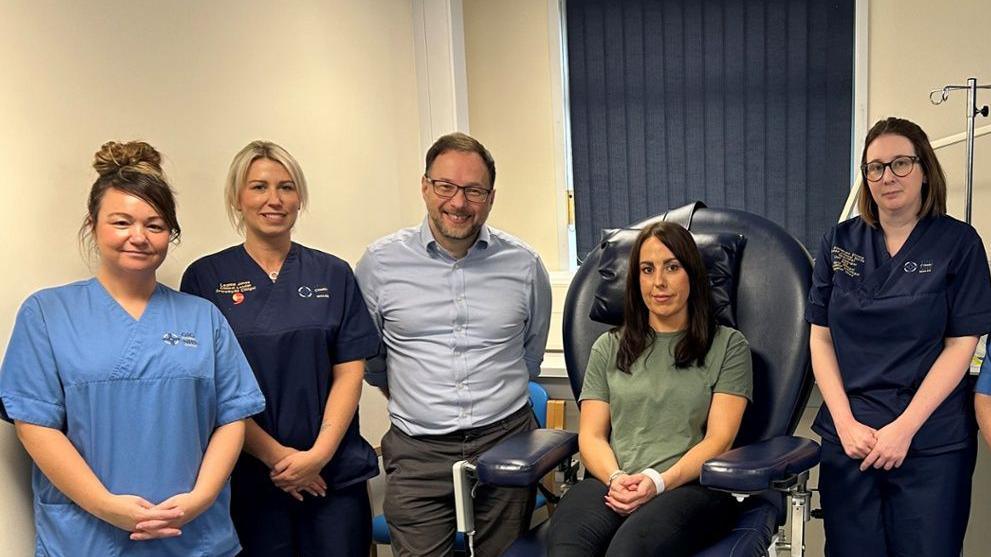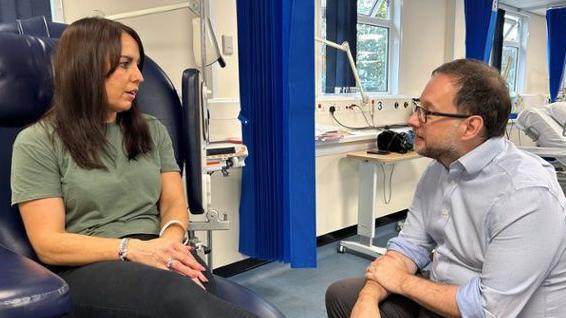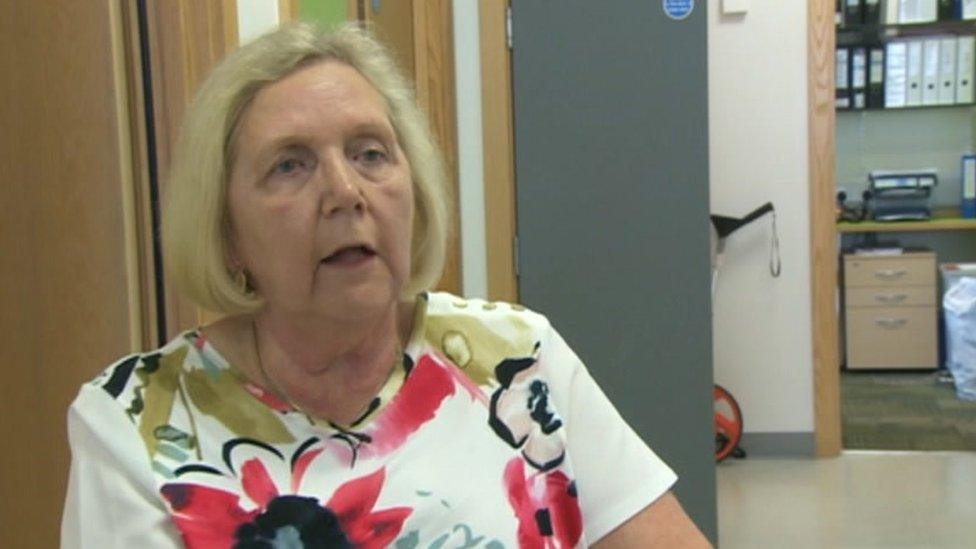Woman becomes first in UK to get new MS injection

Emma Cullen got the first 10-minute MS injection at Morriston hospital in Swansea
- Published
A woman with multiple sclerosis (MS) has become the first person in the UK to receive a new "game-changer" 10-minute injection.
Emma Cullen from Swansea previously had to have an intravenous (IV) infusion twice a year which would take up to four hours each time.
But the medication ocrelizumab, external, which helps to prevent relapses and slow the progression of MS, has now been approved as an injection and the first dose was given at Morriston Hospital.
"I was just amazed, the 10 minutes felt so quick," said Ms Cullen.
MS is a lifelong condition, external which occurs when a person's immune system attacks their nerves, instead of fighting infection.
Ocrelizumab sticks to cells produced and helps stop them reaching and attacking the brain and spinal cord.
Swansea Bay University Health Board was previously involved in the original clinical trial for the drug.
It has now administered the first injection at the Jill Rowe Neurology Ambulatory Unit.
NHS rolls out 'speedy' MS injection
- Published12 July 2024
Mum hopes groundbreaking trial can help her MS
- Published5 September 2023
Patient's anger as hundreds miss out on medication
- Published15 February 2024
Ms Cullen, who works as a civil servant, said finding out she had MS after multiple different scans came as a shock.
"Initially I was taken into hospital with a suspected stroke as I had lost all feeling in my left side, my face had drooped and I had pins and needles," she said.
"As soon as I got over the shock of it, my mindset turned to wanting to do everything I could to prevent it getting worse."
Since starting on the medication, she has not had a relapse, and she said she "jumped" at the chance to try out the new injection.
"It's exactly the same treatment, just through a different method, and it will mean more people can be seen and treated quicker," she added.
"I didn't feel a thing and it didn't even feel as though 10 minutes had passed."
She added her job had "always been really accommodating" and given her time off to have the infusions "but now it does give me the option to go back to work".
"It is a game-changer and I am so grateful... I feel very lucky and would encourage all existing and new patients to consider this new way of administering the treatment."

Emma Cullen said she was very grateful to be the first person to receive the new treatment
Dr Owen Pearson, consultant neurologist, said: "From our point of view, it means we can treat more people a day.
"This form of treatment gives patients the best chance of being stable and continuing to live their lives"
He added that the drug was "one of the most effective forms of treatment".
"It can reduce the risk of relapse for patients by over 80 per cent."
Alexandra Strong, Jill Rowe Neurology Ambulatory Unit manager, added it was "exciting" to have the first patient in the UK.
- Published8 March 2024

- Published16 March 2012
- Published30 July 2019
